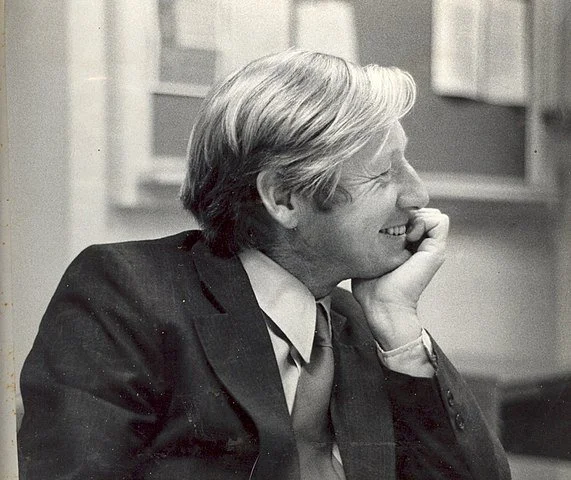Game Over
The 2020s have not been kind for mental health. Suicides are on the rise around the world as we begin to find ourselves in a Mental Health Crisis. May is Mental Health Awareness Month, and boy do we need it. As I've told my students over the past 2 years, "So many people are walking around with PTSD, and they don't even know it." But how can Games help?
Now I'm not saying that playing video games is the answer to curing depression, but I do think it helps. You see many people believe that the opposite of Play is Work. And they would be wrong. The correct answer is the opposite of play is depression.
Play vs Depression
Brian Sutton-Smith was a play theorist who spent over 65 years observing, researching, and teaching in the fields of educational psychology and play theory. He discovered that the following parts of our brain are hyper-activated when in a state of play.
Our internal motivation systems
Our internal reward systems
Our internal problem-solving systems
When we look at someone who is in a state of depression we see the same systems in the brain, breakdown.
Our internal motivation systems
Our internal reward systems
Our internal problem-solving systems
Game Designers know a lot about play theory and how to keep players in a constant Game Flow, whereby these brain activities of motivation, rewards, and problem solving to name a few are being hyper-activated. You could see playing games as a gym workout for the brain.
Deadman Switch Train
The Deadman Switch
Many years ago on a boat in the Amsterdam Canals, I was talking with David Sifry. Dave was telling me about the concept of a 'Deadman's Switch' for trains, and how it could be applied to help prevent suicide. He explained to me that on a train, to prevent the catastrophe of the engineer losing consciousness, and the train becoming a runaway, there is a 'deadman switch'. This switch must be held in place by the engineer, otherwise, the train will stop. Should he collapse, the switch turns off the engine and the brakes on.
He then explained to me that when a person becomes depressed and then suicidal, it is not an overnight event. The person comes into a downward spiraling loop, where they can't seem to solve problems, they have a lack of motivation and close off contact with friends and family. His idea was to use a 'social ping' to a person's friends, should they begin to go down a spiral. that would allow friends and family to react and check up on the person. Much like a train's 'deadman switch'.
"Hey, your friend hasn't been doing so well, you should give him a call." Thanks, Mr. Sifry!
The Case of The Case
I met up with my good friend The Case on his birthday. We met while I was teaching Game Design in Utrecht, The Netherlands. He was also a Game Designer, Artist, and a rare breed. We instantly clicked, and we've been pushing Game Design innovation together ever since. I've learned to get to know him very well and can tell when he is troubled. He told me that he didn't see the reason for living anymore. His wife had left him, he was broke, practically homeless, with no job or projects, just over. Now I have had close family and friends commit suicide before. I couldn't just let it happen again. And that's when the two insights of "Dead Man Switch" and "Play vs Depression" clicked together in my head.
I said, "I have an idea for a new project with you. Every Monday, you come over to my studio (apartment/game room), and we are gonna play video games, and make a youtube channel out of it. What would you like to call the channel?"
He said, "GMVR". I looked at him wondering what GMVR meant. He said, "GaMe oVeR".
And so GMVR was born.
For 3 years, almost every Monday, The Case would come over to my place and play video games. I would record the sessions, and post them on youtube. I honestly didn't care if it was a "hit" as for me, every week he came over, it was a success in my book. Many, many times I would call and call, convincing him to come over when he didn't have the motivation. I always cooked some good meals and made sure we ate well, as loss of appetite is common with depression. I always made sure I would look for games we could play together. We played puzzle games, solving them together. We did some PvP battle games and some very odd story games. I'm convinced that it was not about him just playing, but the fact that we were playing together. My extra motivation was enough to get him playing and start to exercise those same brain muscles that depression had started to atrophy.
Now, luckily The Case was in the Netherlands where there is a fairly good state healthcare system for mental health. He was getting professional help every week. I do not claim that playing games alone will solve mental illness. I do believe that it helped. After some time he got out of debt, his wife and kids returned, and he became steward of a few acres of natural forest on the edge of Amsterdam Today he runs an outdoor summer camp, teaching about nature, and regenerative solutions (sustainable was last century folks).
Why Mondays? Statistically, most suicides happen on a Monday. You may know the song, "I don't like Mondays". The song was inspired by a tragic school shooting. When asked, "Why?" the shooter simply said, "I don't like Mondays." This is also the same reason why as a teacher, I do not teach on Mondays.
How do I know GMVR helped? He told me so.
He said that there were so many times, that he just didn't have the motivation or will. But he knew I was waiting for him. "Getting out of bed on that Monday, was one of the hardest things to do," he said. "I wouldn't have made it to the psychiatrist, or be able to go through the treatment, had it not been for GMVR." The 'Social Pressure' of me waiting for him, with the reward of food, friends, and fun, made the act simple with a high reward at the end.
So, you might have a friend or family member right now who is going through the same thing. You don't need to solve their problems for them. All you have to do is ask them to come to play games on Mondays. It's not that hard to do, and you will cherish the time. And who knows, you might just help save their life.
PLAY ON!
Gabe Mac




